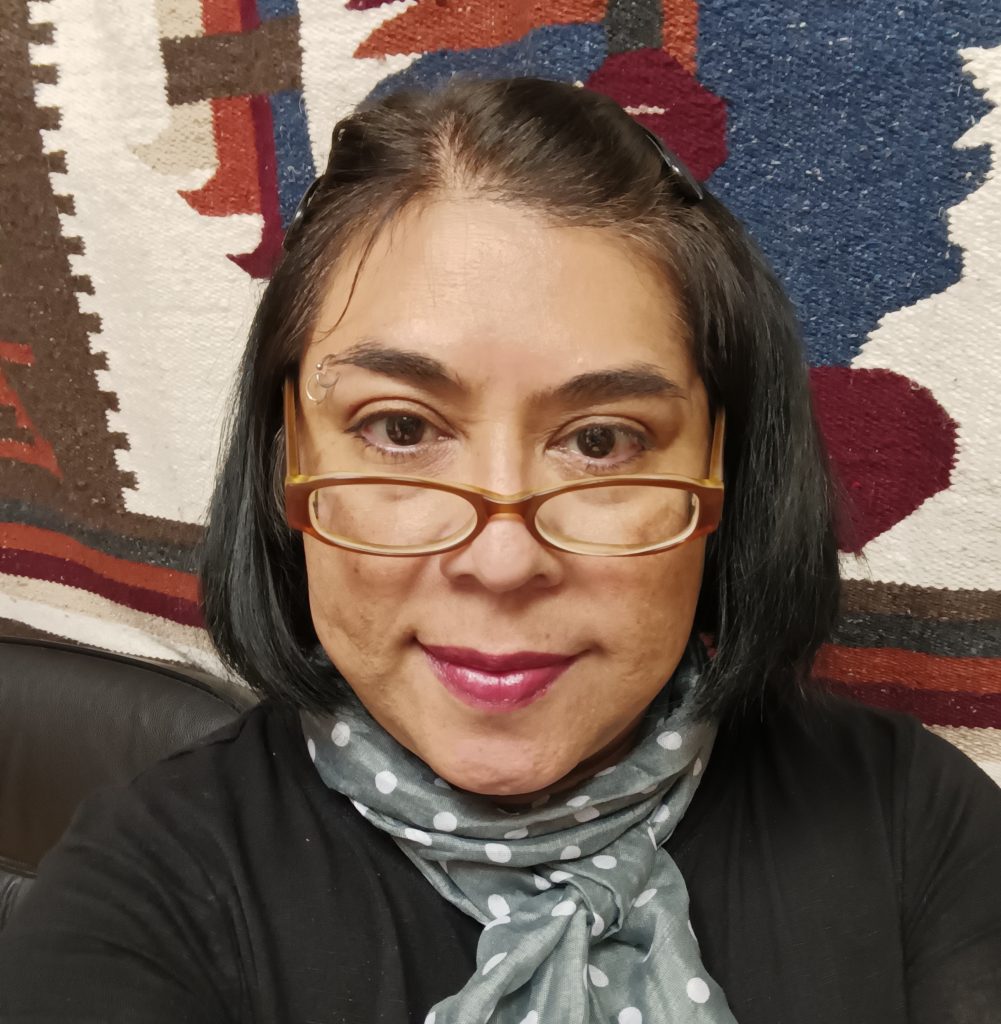
GABRIEL DURAN
Gabriel Duran is the president and founder of FDCLA (Festival de Cine Latino Americano). This nonprofit organization hosts the largest international Latino Film Festival in the Dallas-Fort Worth area. Since its inception in 2015, FDCLA has consistently showcased outstanding films from across Latin America, bringing them to the forefront of the local film scene.
In addition to his leadership at FDCLA – Texas, Gabriel co-founded Vivid Vita Events LLC in 2018, a company dedicated to organizing Latino-focused events, including the annual Fiesta Charra, a charreada and music series held in Lewisville, TX.
His passion lies in connecting the local community with Latino arts, fostering cultural expression and celebration.

DR. ROSALVA RESENDIZ
Rosalva Resendiz holds a Ph.D. in sociology/social (dis)organization theory from Texas Woman’s University.
She is also involved in media arts, having co-produced and co-directed the documentary El Muro|The Wall (2017) with her nephew Dr. Ramon Resendiz. The film foregrounds the story of a Lipan Apache Elder’s resistance to building the border wall on her ancestral lands on the Texas/Mexico border.

ALEX GARCIA TOPETE
Alex Garcia Topete is a writer and filmmaker with more than 15 years of experience working in the creative industries in Mexico and the United States, having worked as transnational line producer for the award-winning film Te Prometo Anarquía (2015), as series development consultant for Sony Pictures Television International (2010), as executive producer for shows on National Public Radio’s digital platform (2010), and as writer-director of nationally-broadcast sketch shows for Mexico’s Televisa del Golfo (2006-2007), among others. He has been the managing partner and chief creative officer of the Dallas-based media production company Nowadays Orange Productions since its establishment in 2011. He has written, directed, and produced several projects, including the independent features Trippers (2010) and Vamps, Blood & Smoking Guns (2012), as well as the award-winning independent sitcom The Realty (2019-), the edutainment web series HablandoTV (2015-) and the Lone Star Emmy-winning docu-series Our Americas (2016-). In addition, Alex has been a curator/programmer since 2007 for several film festivals, including the Dallas International Film Festival and the Festival de Cine Latino Americano of North Texas (FDCLA), of which he’s an original co-founder.
Alex is also a researcher and entrepreneur with a doctorate in Arts, Technology and Emerging Communications and a master’s degree in Innovation & Entrepreneurship from the University of Texas at Dallas. His research and expertise focus on transdisciplinary intelligence & collaboration methodologies, particularly as they relate to the creative industries and their relationship to technology, value creation ecosystems, diverse publics, and social impact.

DR. RAMON RESENDIZ
Dr. Ramón Resendiz is a Chicanx documentary filmmaker and media anthropologist from the south Texas U.S.-Mexico borderlands. He holds a Ph.D. in Media, Culture, and Communication from New York University and a Master of Communication from the Native Voices Documentary Media Program at University of Washington. His research interrogates the material and imaginary intersections of national borders, memory, visual culture, systemic violence, and settler colonialism.
His book project, Archival Resistance: Countervisual Documentary Media on the Margins of the U.S., investigates the historic violence, erasures, and undocumentation of critical Latinx Indigeneities in the national constructions of Texas, Mexico, and the U.S. He critically studies how settler colonial nation states are visualized by archival institutions across the south Texas/U.S. and northern Mexico border landscapes, and the ways visual documentary producers contest and
render these erasures visible.
His filmography includes an array of collaborative community-based documentaries regarding immigration, social justice, human rights issues, Indigenous resistance, and the evidentiary. Chief of these is El Muro | The Wall (2017), a feature-length documentary film project co-produced with the Lipan Apache Band of Texas Tribal Board. The film documented the historic resistance exercised by Lipan Apache/Ndé peoples against colonial occupation and persecution in the south Texas borderlands. It follows Dr. Eloisa G. Tamez’s legal battle against the U.S. Department of Homeland Security’s (USDHS) use of eminent domain to build the U.S. Border Wall of 2006 on her ancestral lands. His films have been screened across film festivals, community screenings, and academic conferences.

KAT HUERTA-ORTEGA
Kat recently graduated from the University of North Texas with her MFA in Documentary Production and Media Studies. She is a daughter of Mexican immigrants and carries her cultural pride into her works. Her ultimate goal as a storyteller is to tell meaningful stories in unforgettable ways.
So far, she has written and directed the documentary Se Me Ha Dado, a film and love letter to her father, which screened at the North Texas Universities Film Festival in 2022. Her current work includes a second documentary, Doble Identidad, an experimental self-reflexive piece about the complexities of biculturalism.
She became involved with FDCLA-Norte as an intern in 2022 and has now become an active committee member. Her primary responsibility is updating and managing the FDCLA-Norte official website.
